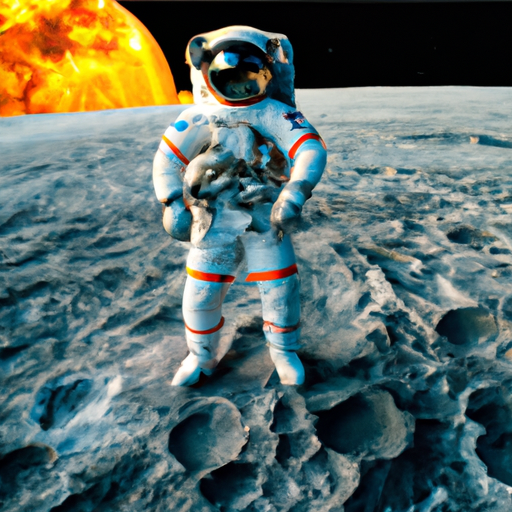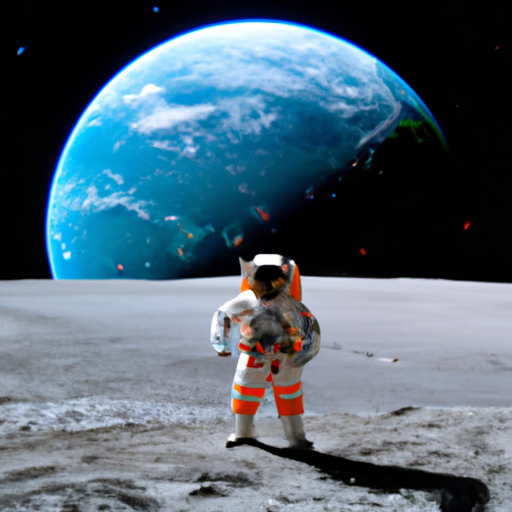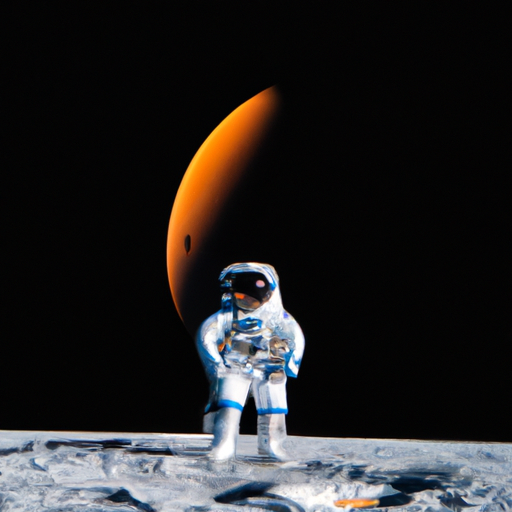The Moon Landing: Opening Doors to Space Exploration and Technological Advancements

The Moon Landing: Opening Doors to Space Exploration and Technological Advancements
On July 16, 1969, the world watched with bated breath as the Apollo 11 spacecraft blasted off from Kennedy Space Center in Florida, USA. The mission's objective? To complete a feat that had seemed impossible until that moment – to land humans on the moon. Just a few days later, on July 20, 1969, Neil Armstrong became the first person to set foot on the lunar surface, uttering those iconic words, "That's one small step for man, one giant leap for mankind." The moon landing not only marked an extraordinary accomplishment for humanity but also opened doors to space exploration and ushered in a new era of technological advancements.

First and foremost, the moon landing was a monumental achievement for humanity. It was a testament to our collective spirit of curiosity, imagination, and perseverance. The successful mission demonstrated that when we set bold goals and work together, there is virtually no limit to what we can achieve. The moon landing brought people from all walks of life together, transcending borders and inspiring generations of future scientists, engineers, and explorers.
The technological advancements that were necessary for the moon landing were truly groundbreaking. The Apollo missions required innovations in fields such as aerospace engineering, computer science, telecommunications, and materials science. To propel the spacecraft to the moon and back, engineers developed powerful rocket engines, lightweight and heat-resistant materials, and advanced guidance and navigation systems. The computers used during the mission were rudimentary by today's standards, but they represented a leap forward in computing technology at the time. The moon landing pushed the boundaries of what was thought possible and led to numerous technological spin-offs that continue to impact our lives today.

One of the most significant outcomes of the moon landing was the advancement of space exploration itself. The success of Apollo 11 paved the way for subsequent missions to the moon, such as Apollo 12, 14, 15, 16, and 17. Each mission built upon the knowledge and experiences of its predecessors, deepening our understanding of the moon's geology, its impact on Earth's history, and the challenges of long-duration space travel. The moon landing also set the stage for ambitious missions to other celestial bodies, such as Mars and beyond. The scientific discoveries made during these missions have expanded our understanding of the universe and laid the foundation for further exploration.
Moreover, the moon landing had a profound impact on our everyday lives. The technologies developed during the space race have given birth to numerous inventions that we take for granted today. Tangible examples include the miniaturized electronics used in mobile phones and computers, lightweight materials used in construction and transportation, and advancements in healthcare technologies. The investment in research and development that was necessary for the moon landing fueled innovation and drove economic growth, creating countless jobs and new industries.
The legacy of the moon landing continues to inspire people around the globe. It acts as a powerful reminder of what we can achieve as a species when we dream big and work together. The Apollo 11 mission propelled us into a new era of space exploration and catalyzed technological advancements that have shaped our world. It showed us that no challenge is insurmountable, and that the unknown is both within reach and worth exploring. As we look towards the future, let us remember the moon landing as a pivotal moment in our history and as a catalyst for further exploration and innovation.






